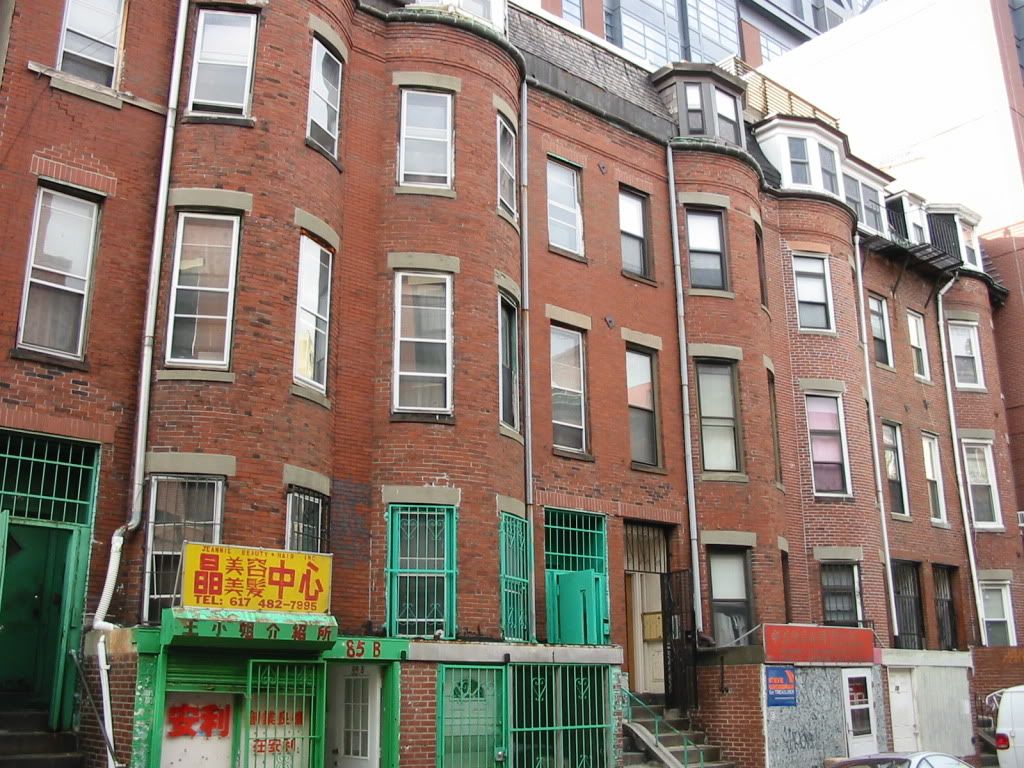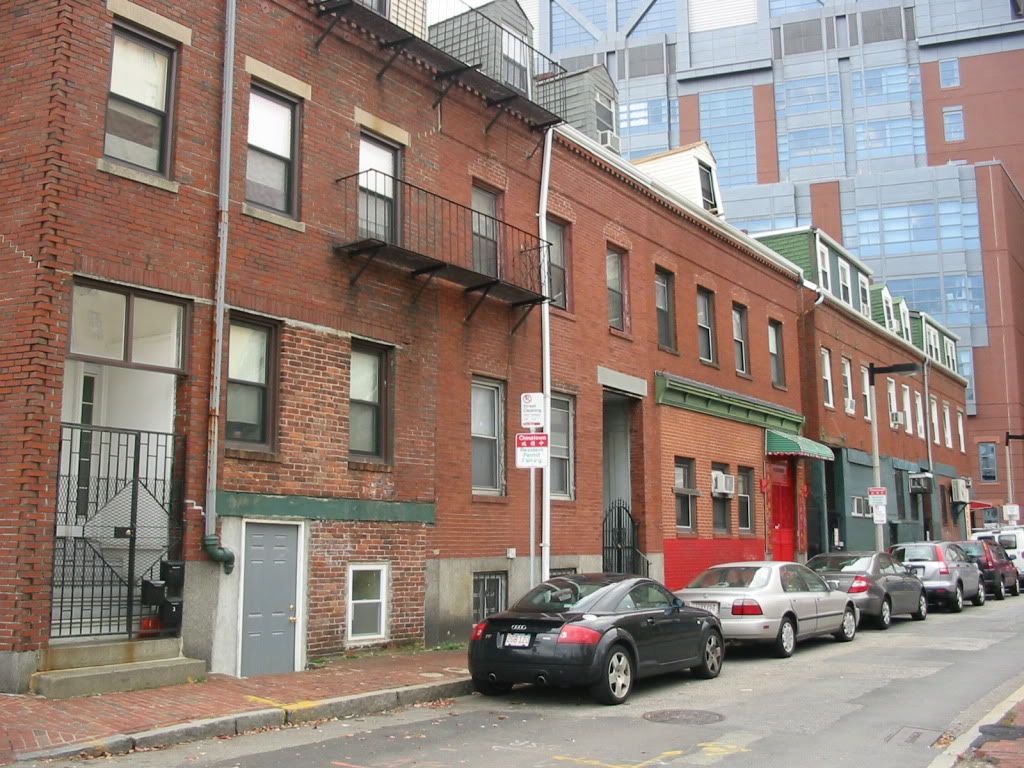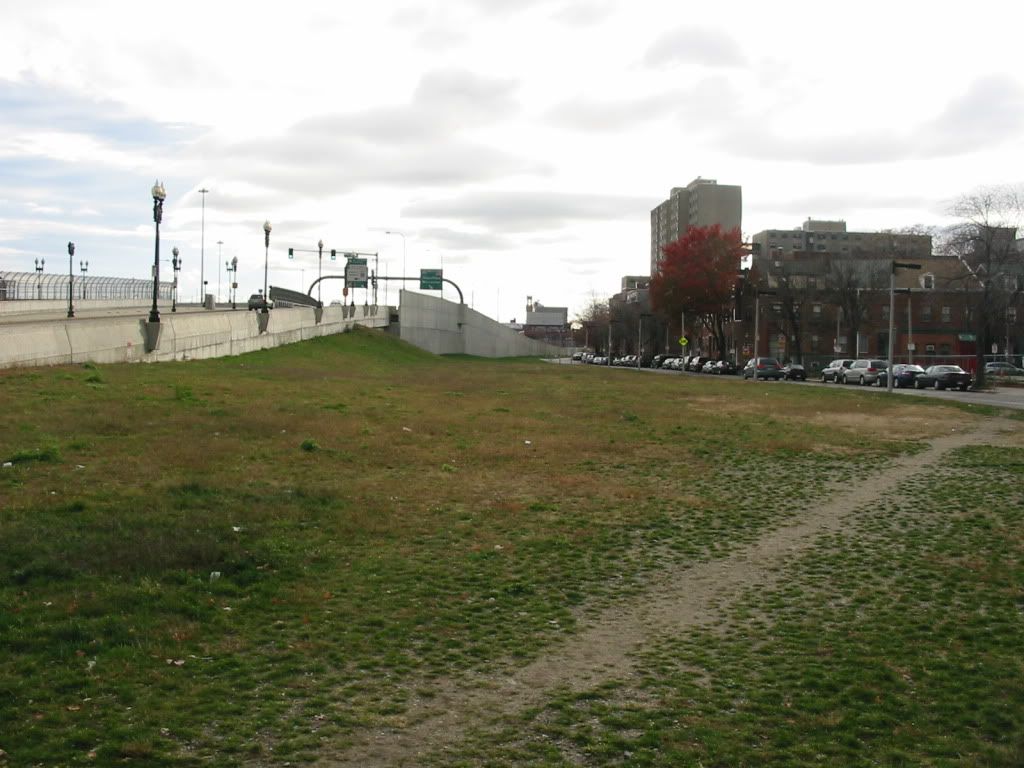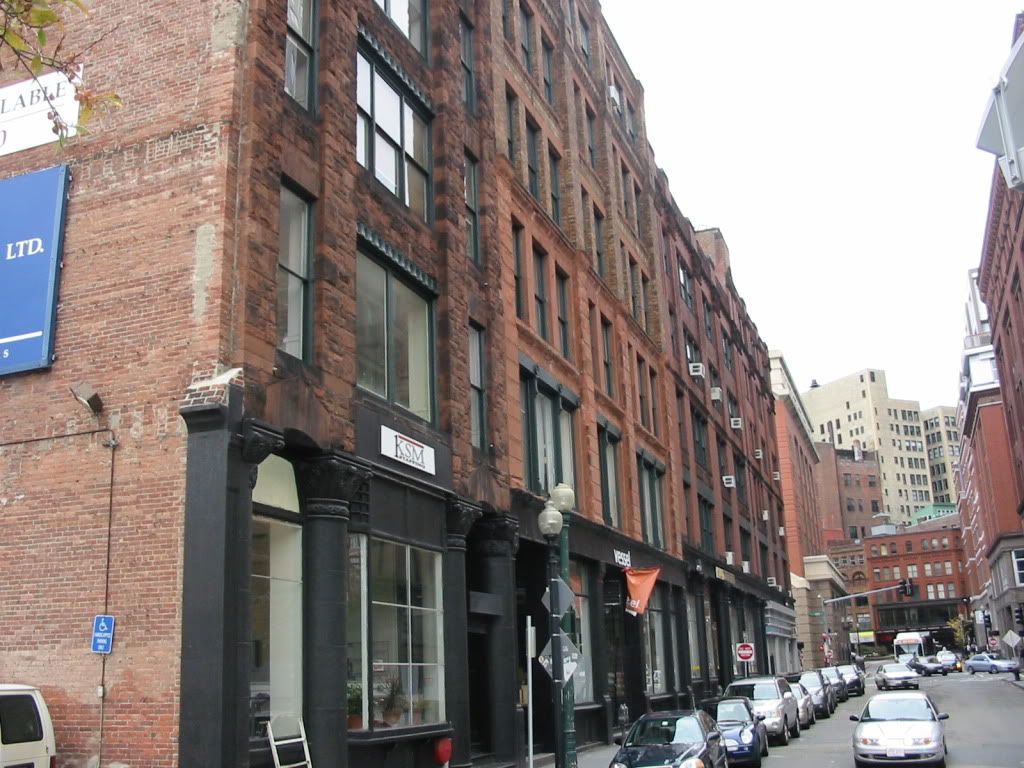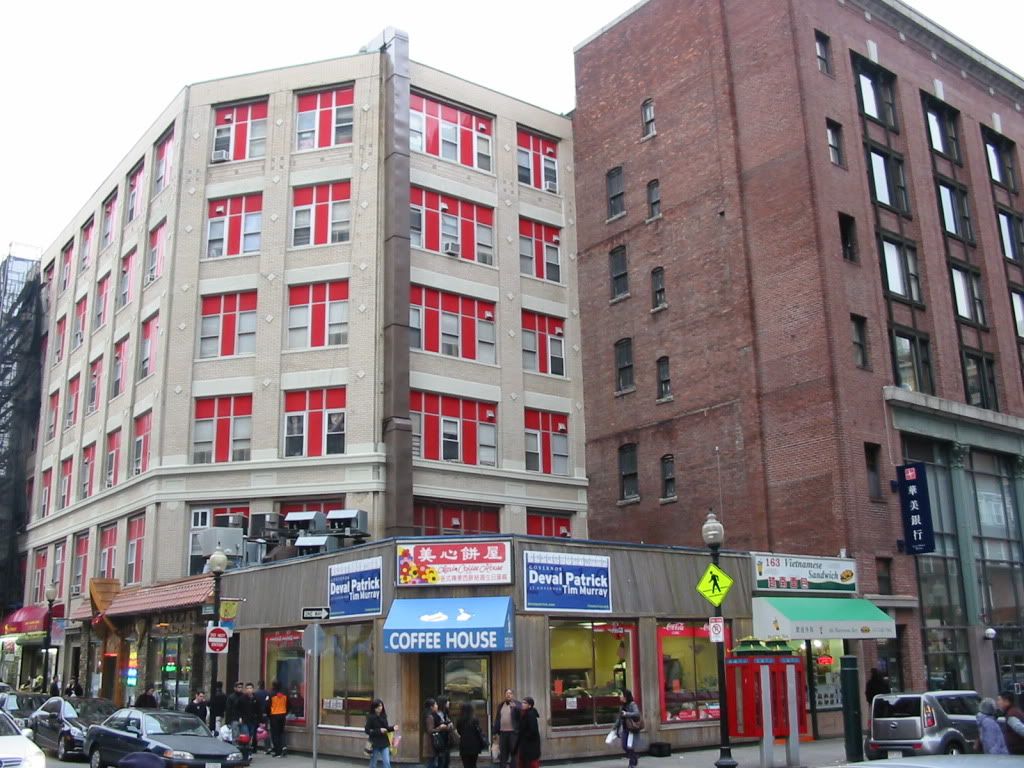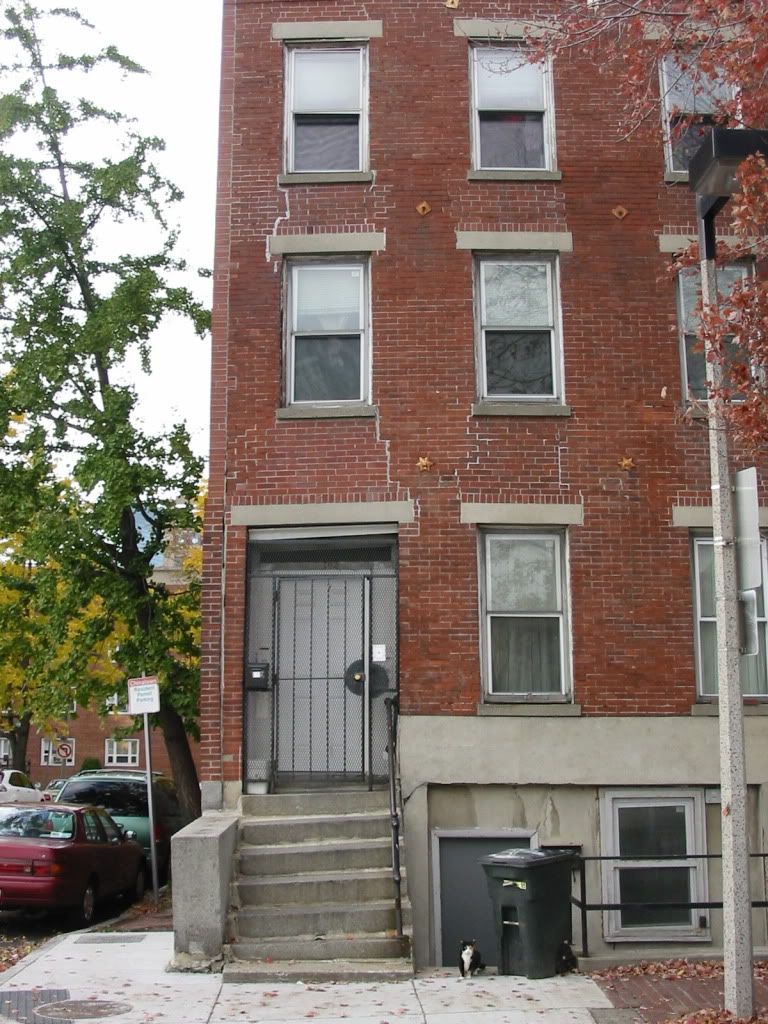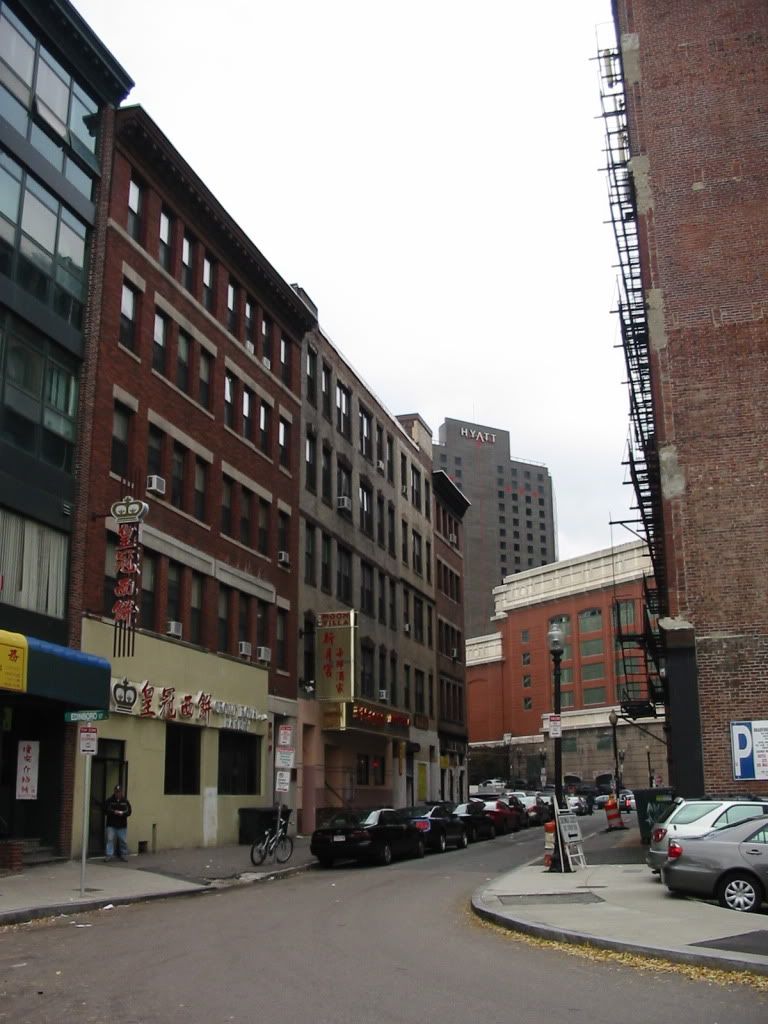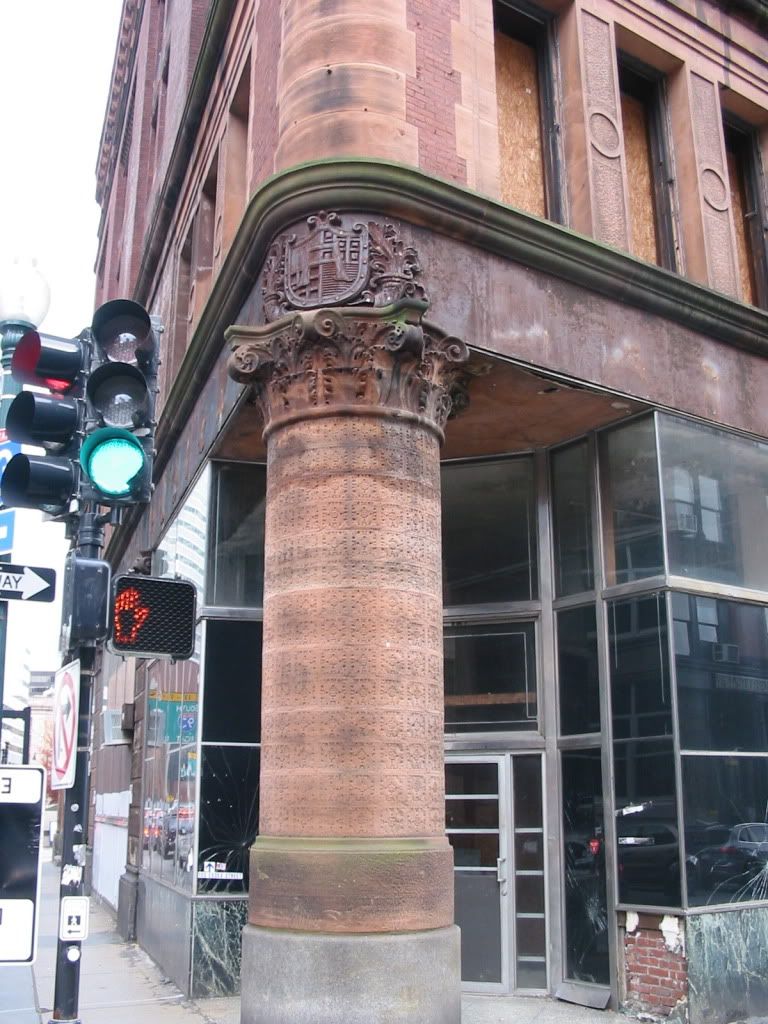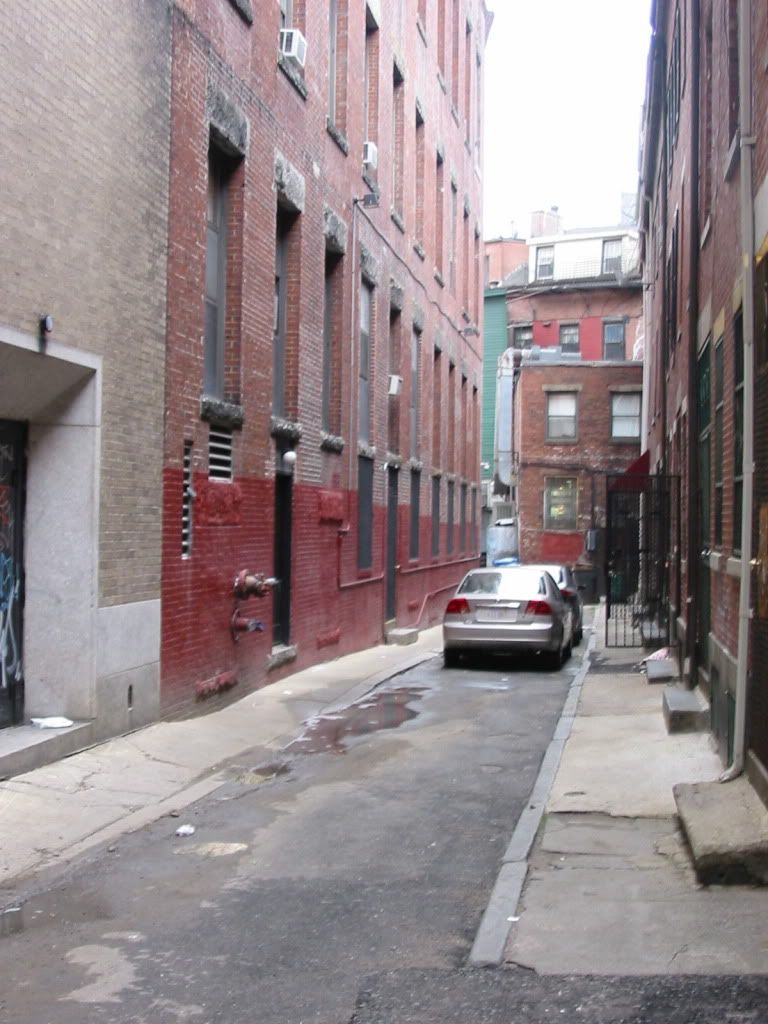A fare change in Chinatown
Restaurants add Korean, Japanese, Vietnamese items
By Sarah Schweitzer, Globe Staff | August 6, 2007
Winnie Yung grew up in a remote Cantonese village in the Chinese countryside, where white rice and vegetables were daily fare and Vietnamese noodle rolls were about as foreign as a calzone.
But one morning last week found Yung in Chinatown, feverishly scrubbing counters in a Chinese eatery that she recently purchased and plans to transform into a Vietnamese restaurant.
"Vietnamese food is low-fat and fast," said Yung, of Malden, whose husband owned a Chinese restaurant in Hanover until recently. "I wanted to try a change."
Yung is part of a growing number of Chinatown restaurateurs who are serving up non-Chinese dishes in a departure from the neighborhood's namesake and tradition.
Where chop suey and chow mein long reigned supreme, Vietnamese sandwich shops, Korean barbecue joints, and sushi bars now dot the narrow, bustling streets. And while Chinese banquet halls and seafood emporiums still form the majority of eateries in Chinatown, some say non-Chinese restaurants could one day soon catch up.
The shift, restaurant owners say, owes to an overabundance of Chinese restaurants and an American palate that is increasingly keen to a broader array of Asians foods now available in Boston.
So fractured is the Chinatown market that many restaurants now offer multiple Asian cuisines.
"We wanted to appeal to both markets," said Sue Duong, 23, a recent Northeastern University graduate of Vietnamese heritage who works summers at Xinh Xinh, her family's 18-month-old Chinatown restaurant, which serves both Vietnamese and Chinese dishes.
The influx of non-Chinese fare to Chinatown has been evolving in recent decades, and does not mean that Chinese influence has diminished. The vast majority of owners of the restaurants have Chinese roots. Though Duong's parents came to the United States from Vietnam, her grandparents were born in China. The same is true for many other owners of Chinatown Vietnamese restaurants, including the Rainbow Cafe and Original Buddha Delight restaurant.
The owner of Kaze Shabu Shabu, a Japanese restaurant, is Chinese. Ginza, a Japanese restaurant, is owned by two men of Chinese origin and one of Japanese.
Pearl Villa, which serves both Chinese and Malaysian fare, has Chinese owners.
"The various Asian ethnicities are poaching each other's cuisines to attract more customers," said Michael Liu of the Institute for Asian American Studies at the University of Massachusetts at Boston.
But restaurant owners say the grab for a wider Chinatown restaurant clientele has had mixed results. Some say lunchtime business is booming as downtown workers flock for ph? and futo-maki, but dinner traffic is slow because parking challenges thwart non-Chinatown residents from visiting. Restaurant owners are banking on new business from the high-end lofts and condominiums under construction in and around Chinatown, whose residents, they hope, will seek out Asian offerings considered more eclectic than traditional Chinese.
For years, Boston's Chinatown was a single-cuisine neighborhood. Located on reclaimed tidal flats that had been previously home to Irish, Jews, Italians, and Syrians, Chinatown was settled in the 1880s by Chinese laborers fleeing anti-Chinese sentiment on the West Coast. By the 1920s, small Chinese restaurants catered to Chinese laundrymen and merchants, according to a 1998 Princeton University dissertation made available to the Globe by the Chinese Historical Society.
In 1929, Ruby Foo's Den opened on Hudson Street and became the first Chinatown restaurant to attract a steady stream of non-Chinese customers, mostly garment factory owners and managers who were largely Jewish, according to the dissertation. A slew of restaurants opened following the 1941 razing of Chinatown's elevated rail. By the end of World War II, a restaurant district had come into being, with 26 Chinatown restaurants in 1952 that catered to non-Chinese customers. The restaurants offered Americanized Chinese food, like chop suey, adopted English names like Good Earth and Lotus Inn, and fronted signs adorned with neon dragons and promises of exotic dining experiences.
Specialists date the beginning of Chinatown's Pan-Asian smorgasbord to the 1980s, when newly arrived Vietnamese immigrants rented storefronts that had been part of the Combat Zone, a six-block zoned stretch of adult entertainment that was on the decline because of competition from X-rated home videos and suburban strip malls. Some Vietnamese restaurants departed Chinatown later that decade to open restaurants in Fields Corner in Dorchester. Those who stayed tended to be of Vietnamese or Chinese extraction, said Hiep Chu, executive director of Vietnamese American Initiative for Development Inc.
In the 1990s, Malaysian, Japanese, and Korean restaurants moved in, propelled by growing interest in Asian cuisines that were lighter than some Chinese fare. At the same time, some Chinese restaurants departed Chinatown for Boston suburbs, such as Quincy and Malden, where growing numbers of Chinese had taken up residence.
Chinatown's Chinese restaurants evolved as well.
Chop suey was excised from menus and replaced with more authentic fare.
"They now use chopsticks, no forks," said David Wong, owner of a block fronting Washington Street that includes a several Vietnamese eateries as well as his Empire Garden Restaurant.
There, he said, he now serves dim sum all day in a nod to American diners' eagerness for something different and lighter than the traditional fare of Chinese restaurants in the United States.
Still, some are bypassing Chinese altogether.
At Xinh Xinh on Friday afternoon, Dana Roszkiewicz, an employee of the state Department of Mental Retardation, flipped past the restaurants Chinese offerings to the Vietnamese ones.
"The flavors are lighter and clean. The bright colors. The taste is fresh," Roszkiewicz said as he closed the menu and prepared to order Vietnamese spring rolls and chicken with lemongrass in Chinatown.












